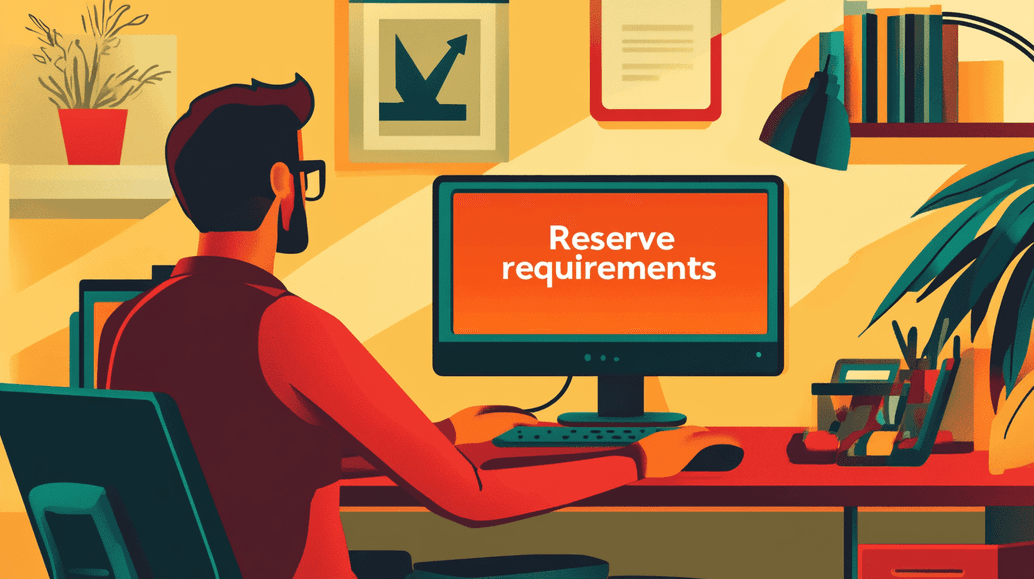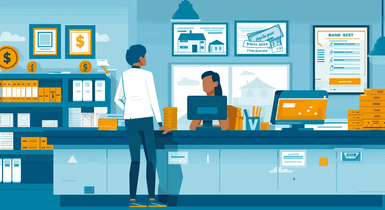What Are Mortgage Reserves?: What You Need to Know

When applying for credit to buy a home in the USA, you will be dealing with mortgage reserves. This term means cash, which you can use for a down payment and closing costs. It is wise to have it because when lenders create a mortgage, they want to take as little risk as possible.
This article will help you understand the minimum requirements for credit points and primary payments and the limits on the amount of debt you can have on your income. Let’s discuss reserve requirements for mortgages and how to calculate reserves for mortgages.
The Significance of Mortgage Reserves

Most borrowers have no reserves required for a mortgage unless they buy a specific type of property or if their application may receive a premium due to bad credit, a low initial payment, or a high debt-to-income (DTI) ratio. For example, home buyers with a credit rating below 700 who make the first payment of less than 20% may have necessary cash reserves for a mortgage for six months.
Even home buyers making a more significant initial payment may still need mortgage reserves if their credit score is 600. In such cases, you will need sufficient reserve for a payment mortgage by two to six months.
Self-employed borrowers should have cash reserves for a mortgage, particularly if their income is irregular.
If you’re a real estate investor, you may also need cash reserves, which mortgage lenders can see, mainly if your repayment plans depend on incomes (rent or leasing) received from property against which you borrow.
Determining Your Mortgage Reserves

If you require mortgage reserves, their amount usually depends on the type of loan you are applying for and the type of property you are buying.
What are reserves in a mortgage, and how do you calculate them? The sum of the mortgage reserves largely depends on the type of loan you are getting and the property you finance. For example, if you are receiving a conventional investment property loan, you will need reserves for six months.
Even if your lender reserves are not necessary, it is wise to have short-term savings, i.e., cash, which will help you in an urgent situation, in case you quit your job or when unexpected home or car repairs pop up.
To calculate mortgage reserves, multiply your monthly payment by the number of months your lender requires. For instance, if your payment is $1,000 and you need reserves for five months, you’ll need $5,000 in liquid assets.
What Assets Are Allowed as Mortgage Reserves?
Cash in your checking or savings account counts as reserves, but other assets can qualify too. For a regular loan, these include:
- Invested funds for pension accounts, such as a 401(k) or Roth IRA
- Shares, bonds, shares funds, and money market funds.
- Deposit certificates (CD).
- Cash value of a life insurance policy.
- Funds in trust.
For some types of mortgage loans, the lender can count only up to 60% of invested funds as qualified reserves. Contact your loan officer to learn more specifically about your situation.
Reserves for Various Loan Types

We offer to your attention reserve requirements for mortgage by type of loan:
Ordinary credit.
- Two months for secondary housing;
- Six months for refinancing cash with a DTI ratio above 45%;
- Six months for investment real estate;
- Six months for primary residence, up to four units;
FHA loan.
- One month for one or two apartments;
- Three months for three or four apartments;
VA credit.
- Three months if the borrower uses rental income from a current property to qualify;
- Six months for properties with several apartments if the borrower includes expected income from rent for qualification purposes;
USDA loan.
- No requirements.
Reserve requirements for mortgage by types of real estate:
- Primary residence: up to six months.
- Second house: two months or more.
- Investment property: from three to six months or more.
Down Payment | Credit Score | DTI Ratio | Minimum Months of Reserves Required |
|---|---|---|---|
5% | 720 | 36% to 45% | 0 |
| 700 | 36% to 45% | 6 |
| 660 | 36% to 45% | 6 |
25% or more | 680 | 36% or less | 0 |
| 620 | 36% to 45% | 2 |
| 660 | 36% to 45% | 6 |
Reserve requirements for mortgages under the state lending program differ from conventional loan recommendations. You will need to confirm the availability of additional cash reserves if you buy a property of one to four apartments, even if you will live in one of these apartments as your primary residence.
If you take a loan provided by the Federal Housing Administration (FHA), the US Department of Agriculture (USDA), or the US Department of Veterans Affairs (VA), the table below details how much money reserves you may need.
Loan Program | Cash Reserve Minimum |
|---|---|
Conventional loans | Up to six months. |
FHA loans | One month for one- two-unit properties; Three months for three- or four-unit properties. |
AND loans | Up to six months if financing a multifamily home; Three months for all non-VA financed properties owned. |
USDA loans | Not required. |
Conclusion
Mortgage reserves concern cash or other readily available assets that can be used to make mortgage payments to purchase housing. These assets are more than the money you would have used for the initial payment and expenses for mortgage reserves after closing.
Not every borrower must have reserves. It is dependent on your credit, finances, and the circumstances under which you get the mortgage.




